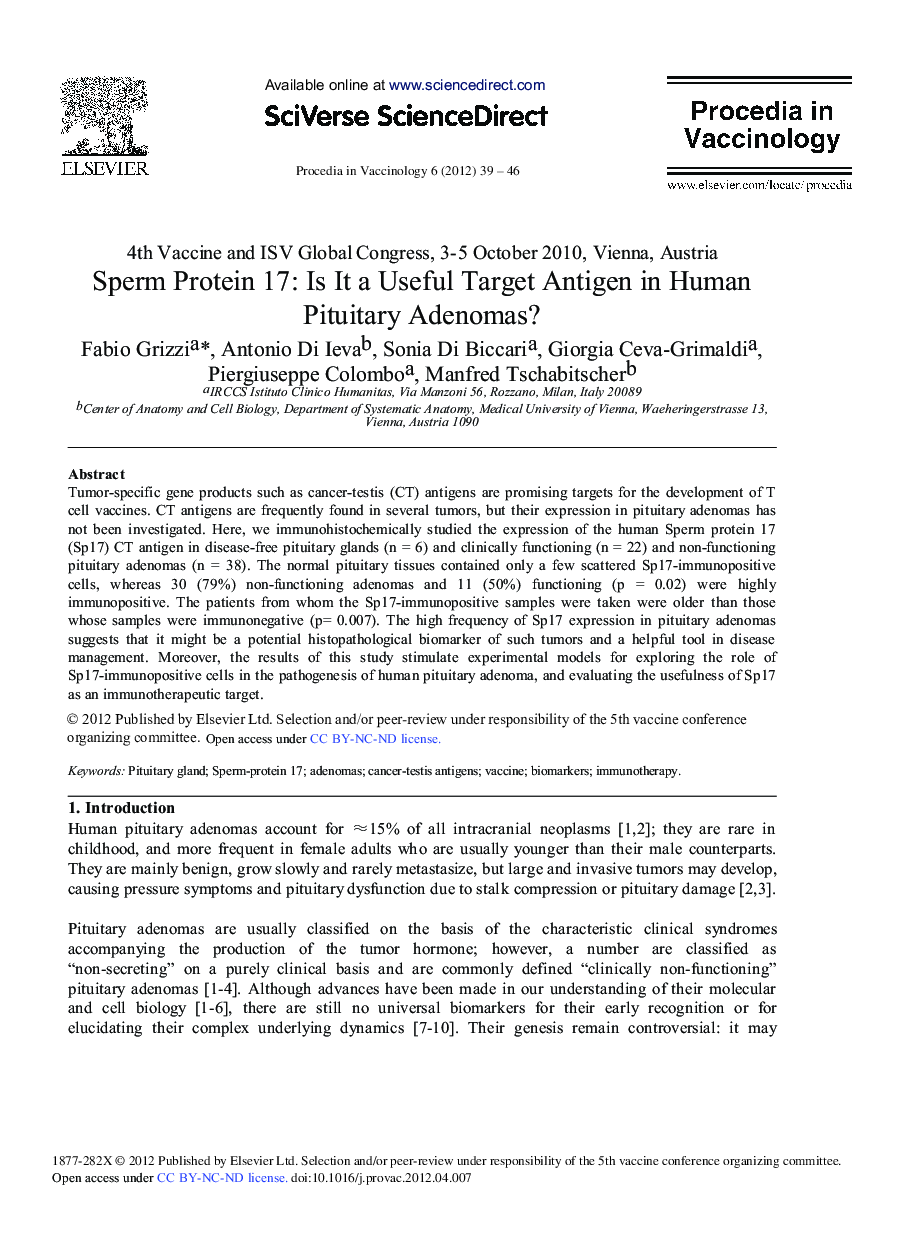| Article ID | Journal | Published Year | Pages | File Type |
|---|---|---|---|---|
| 2473776 | Procedia in Vaccinology | 2012 | 8 Pages |
Tumor-specific gene products such as cancer-testis (CT) antigens are promising targets for the development of T cell vaccines. CT antigens are frequently found in several tumors, but their expression in pituitary adenomas has not been investigated. Here, we immunohistochemically studied the expression of the human Sperm protein 17 (Sp17) CT antigen in disease-free pituitary glands (n = 6) and clinically functioning (n = 22) and non-functioning pituitary adenomas (n = 38). The normal pituitary tissues contained only a few scattered Sp17-immunopositive cells, whereas 30 (79%) non-functioning adenomas and 11 (50%) functioning (p = 0.02) were highly immunopositive. The patients from whom the Sp17-immunopositive samples were taken were older than those whose samples were immunonegative (p= 0.007). The high frequency of Sp17 expression in pituitary adenomas suggests that it might be a potential histopathological biomarker of such tumors and a helpful tool in disease management. Moreover, the results of this study stimulate experimental models for exploring the role of Sp17-immunopositive cells in the pathogenesis of human pituitary adenoma, and evaluating the usefulness of Sp17 as an immunotherapeutic target.
